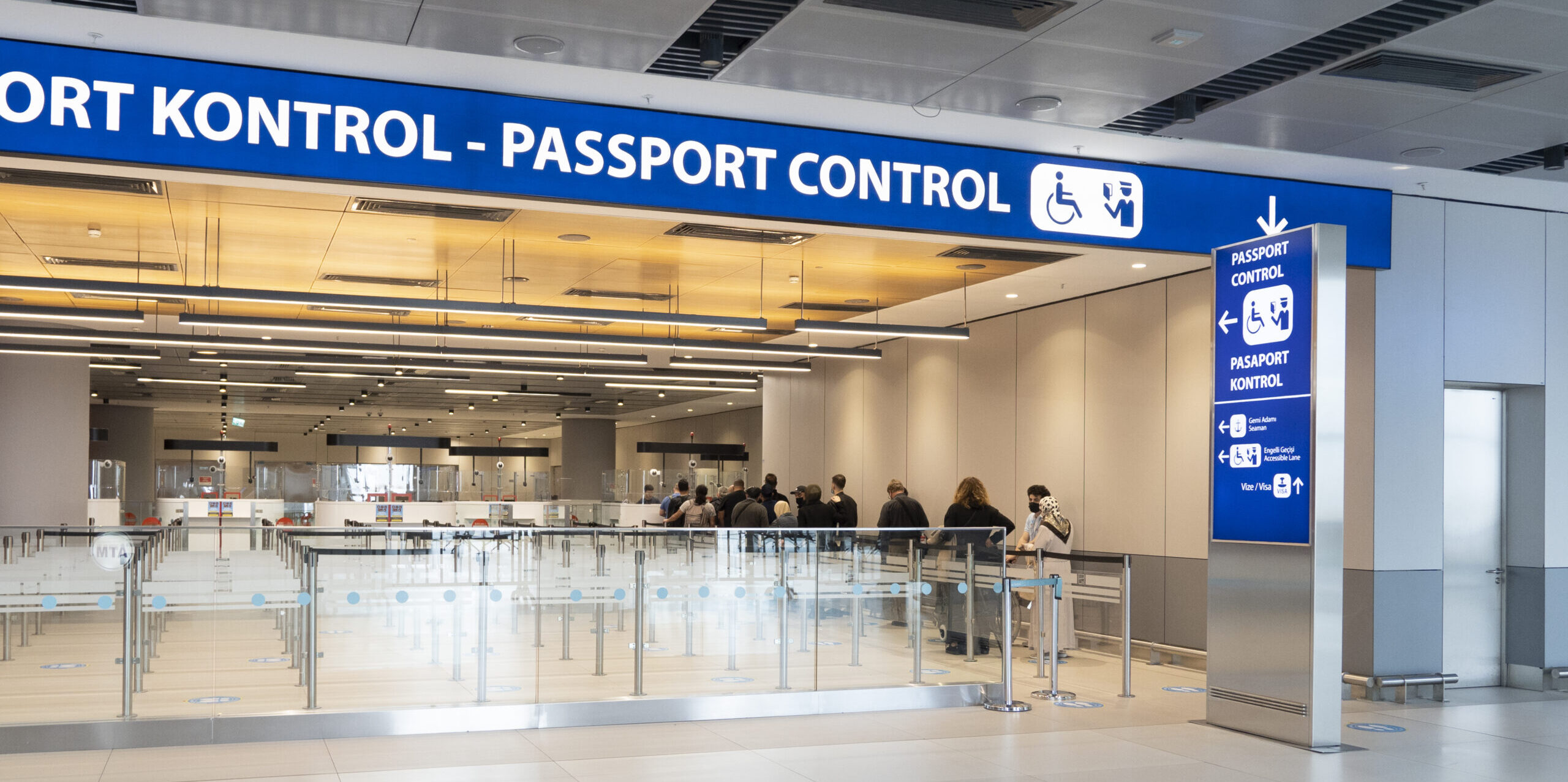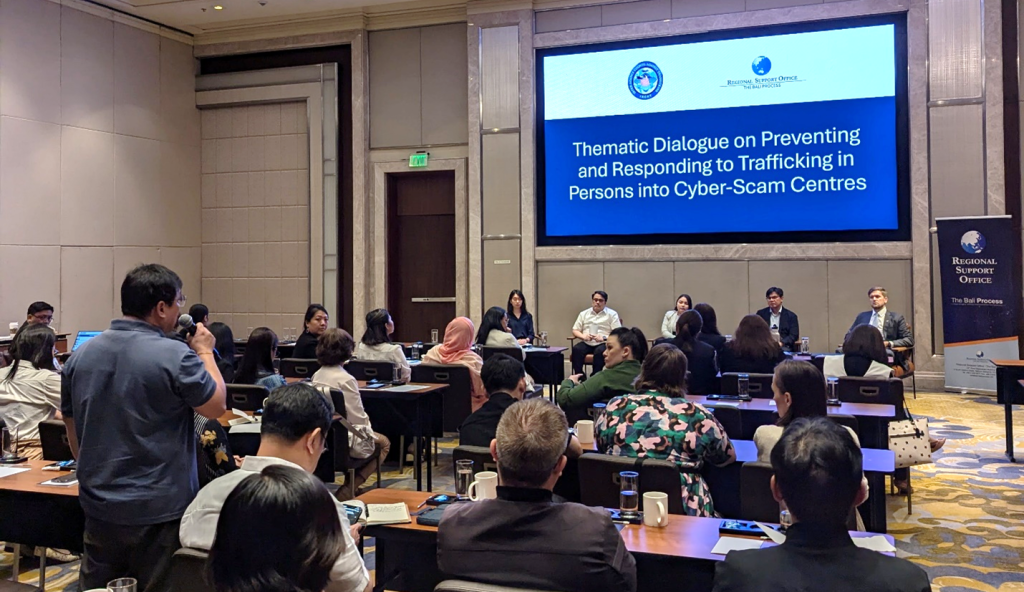About the Regional Strategic Roadmap
Trafficking in persons in the Asia-Pacific region
The Asia-Pacific region has witnessed an expansion in the incidence and scope of trafficking in persons and modern slavery. Alongside the largest share of women and children trafficked globally for sexual exploitation, considerable numbers of men and women are trafficked for forced labour and related exploitation, with forced marriage a concern for this region.
An expansion of social media use and time spent online has triggered a dramatic increase in tech-facilitated trafficking, with technology in use at every stage of trafficking—from recruitment to laundering the illicit proceeds of this criminal activity. Both global and domestic dimensions of trafficking are key issues for this region, with victims found across the Asia-Pacific, the Middle East, Europe, and North America.
The Regional Strategic Roadmap
This Regional Strategic Roadmap is a comprehensive tool for Bali Process member States, policy makers and practitioners to review, develop or strengthen national counter-trafficking policies through prevention, prosecution and protection (3Ps) by aligning international legal standards, human rights principles and effective practices from across the Bali Process membership. The Regional Strategic Roadmap also serves as a resource center for domestic laws and policies that address trafficking in persons which have been instituted by Bali Process member States. The Regional Strategic Roadmap compiles available materials, references, publications, and training available in the region. Importantly, the Regional Strategic Roadmap is a platform to share knowledge and effective practices identified among Bali Process members, and promote regional cooperation. The toolkit has been designed to assist policy makers and practitioners navigate through four distinct categories: planning, principles, policy and practices.
TRAFFICKING IN PERSONS IN THE ASIA-PACIFIC REGION
3PS APPROACH
PRINCIPLES, POLICY, NATIONAL LAWS AND ACTION PLANS
Trafficking in persons is a complex and dynamic crime which requires comprehensive legal and social policy approaches to prevent the crime, punish perpetrators and protect victims. It is widely recognized that trafficking in persons is a crime against individuals which harms and violates their basic human rights. Trafficking in persons also undermines States national security, economy and social norms. National responses need to be supported by close cooperation among States and partners. States, international organizations and other actors are adopting multi-layered approaches to address trafficking in persons. To date 27 Bali Process States have ratified the Protocol to Prevent, Suppress and Punish Trafficking in Persons, especially Women and Children (the Trafficking in Persons Protocol) and 41 Bali Process member States have domestic legal provisions against trafficking in persons. Many of the Bali Process member States have also developed National Action Plans that outline policy measures to address trafficking in persons.

The Bali Process members commitment to combat trafficking in persons in the Asia-Pacific region was reinforced by the 2016 Bali Process Declaration. Building upon the desire to engage in activities that strengthen national and regional responses to trafficking in persons, the Regional Support Office to the Bali Process (the RSO) has developed a Regional Strategic Roadmap that informs members of options to strengthen their approaches to trafficking.

The ‘3Ps’ approach derives from the Trafficking in Persons Protocol that focuses on three elements: prevention, prosecution, protection. The ‘3Ps’ approach is a fundamental framework used by governments around the world to combat human trafficking.
3Ps policy approach has the following aims:
Prevention: address the socio-economic vulnerabilities that drive trafficking while tackling the existing demand for exploitation of persons; create sustainable migration solutions; address existing social inequalities; eliminate all forms of discrimination against women, minorities and other marginalised groups; provide equal access to education and economic opportunities for all, including youth.
Protection: change the perception of who is a victim; provide required assistance and protection for victims while upholding their human rights; ensure their recovery and successful integration back to their communities and prevent re-trafficking.
Prosecution: implement effective laws that ensure successful prosecution of offenders anddeliver justice for victims; deter trafficking by increasing penalties for traffickers; disrupt trafficking activities through strong law enforcement cooperation domestically and regionally.
This operational ‘3Ps approach’ is underpinned by several guiding principles based on the legislative work of the United Nations such as: human rights-based approach, principle of non-discrimination, gender-sensitive approach and child-rights approach. Lastly, the need for policy to stand on evidence-based and inter-disciplinary approaches should be mentioned.
Apart from being a comprehensive resource center of the basic elements for a counter trafficking policy, the Regional Strategic Roadmap also proposes a number of tools for policy makers and other practitioners to systematically assess the current state of national counter trafficking policies, and to identify measures to enhance counter-trafficking efforts while setting attainable and sustainable targets.
On the Regional Strategic Roadmap website, you will find:
1. An outline of the fundamental principles used to develop effective counter-trafficking policies can be found, along with an overview of international and regional legal instruments that relate to trafficking in persons.
2. The core operational aspects of a counter-trafficking policy can be found under “the three Ps” - Protection, Prevention and Prosecution. Users will find a detailed repository of legal and policy information, along with descriptions of policy measures, implementation methodology, additional resources, and examples of effective practice.
3. A comprehensive compendium of all Bali Process Member States' national laws and action plans relating to trafficking in persons.



